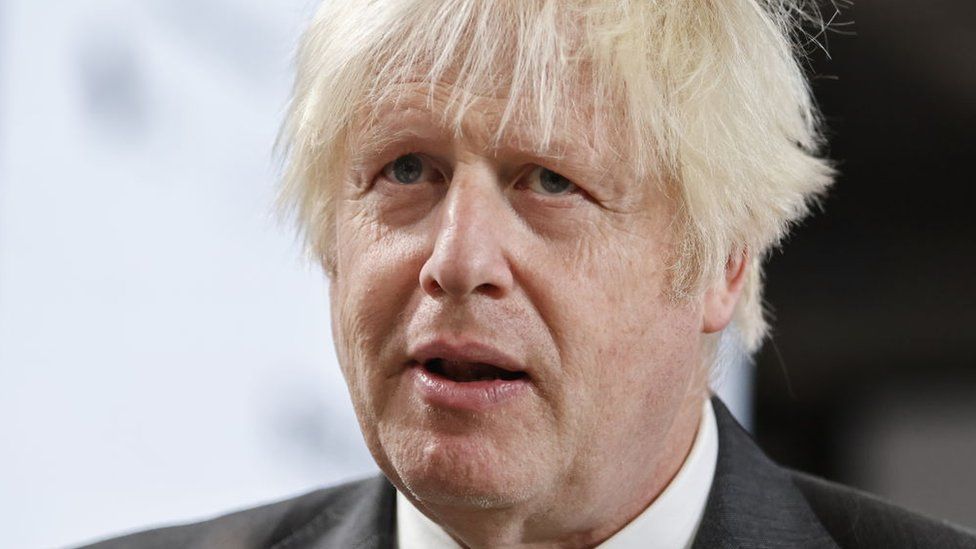Boris Johnson turned away from polling station after forgetting ID

The blog passage comes from free English, so it is already written in a way that is easy to understand. However, as an AI language model, I can still reflect the same content using different words. The source of the picture is Getty Images.

Boris Johnson, who used to serve as the Prime Minister for the Conservative party, was denied access to his nearby voting location as he neglected to bring along the required photo identification.
As initially stated by Sky News, he came back afterwards with the required identification and was eligible to cast his ballot.
He voted in South Oxfordshire, where people are electing a police and crime commissioner.
The Elections Act of 2022, brought about by Mr Johnson's administration, implemented fresh regulations mandating voters to produce photo identification.
The modification was implemented in the previous year, and the use of identification documents was required from voters during the local elections held on May 2023.
Around 14,000 individuals were not able to participate in the local elections held in England last year because of the recently imposed regulations, as per the Electoral Commission.
There exist 22 types of identification that are accepted, some of which are passports, driving licenses, bus passes for older or disabled individuals, and Oyster 60+ cards.
Individuals who have completed voter registration are eligible to request a complimentary document referred to as a Voter Authority Certificate.
According to recent reports, the government has announced that they plan to authorize the use of veterans' ID cards as acceptable voter identification. This decision was made after reports surfaced that certain ex-military personnel were denied the opportunity to cast their votes due to the form of identification they had presented at the polling stations.
The minister responsible for veterans, Johnny Mercer, expressed regret on social media to an individual who claimed that he was unable to cast his vote with his veterans' identification card.
He noted that the rules for valid identification were published before the release of veteran identity cards in January 2021.
"I will make every effort possible to modify it prior to the upcoming one."
A spokesperson from the British Prime Minister's office stated that they plan to include the recently introduced Veteran Card on the authorized catalogue. This decision was made in January.
The government is currently seeking public input on whether to include the card as an acceptable form of voter identification. This is in addition to the currently accepted forms of identification, such as armed forces identity cards.
Conservative Member of Parliament, Tom Hunt, revealed that his dyspraxia was the reason for him misplacing his passport. Consequently, he had to make last minute arrangements for someone to vote on his behalf.
Transport Secretary Mark Harper was questioned about concerns related to voter identification. He replied by acknowledging that with millions of people voting, it is normal to experience a few problems. These issues are limited and do not affect a significant number of individuals.
Nevertheless, he expressed the opinion that the majority of voters have faced no difficulties in casting their vote by presenting the required identification throughout the entire nation.
When questioned about Mr. Johnson's rejection from the polling station, Chris Heaton-Harris, the Northern Ireland Secretary who worked as his chief whip, responded on BBC Radio. He stated that he wasn't entirely shocked as he is familiar with Boris. However, Chris did mention that he saw Boris go back home to retrieve his identification before heading back to the polling station to cast his vote for the Conservative party.
According to the Electoral Commission, a majority of voters were able to cast their vote even with the implementation of voter ID requirements.
A representative stated they would commence gathering proof from voters, officials in charge of elections, collaborators, and advocates to grasp their perspectives on the elections and determine any conceivable barriers preventing participation.

















































